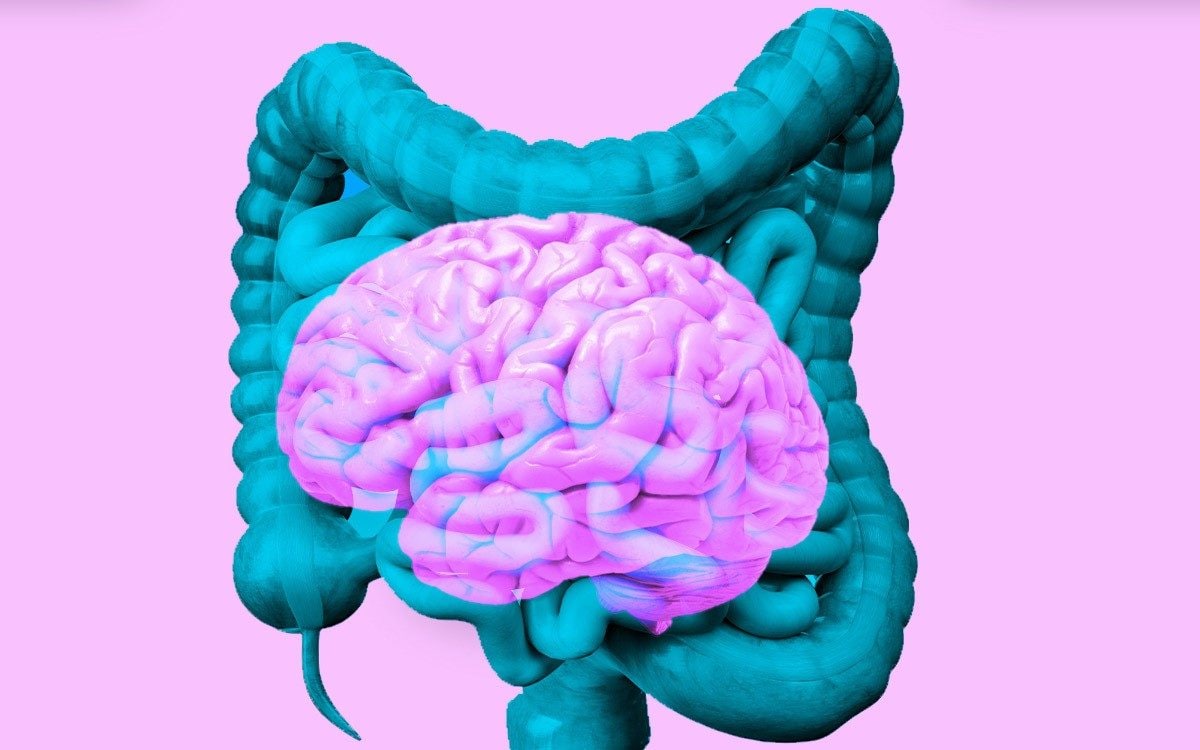An interview with Dr Lynne Barker published in The Telegraph today poses the thinking that the key to a healthy brain may lie in your gut. We’ve taken a look at how the gut and brain communicate and shared 5 easy-to implement tips that will help support your gut microbiome.
What is the gut-brain connection?
In its simplest form, the gut-brain connection is the bidirectional communication between the brain and the gastrointestinal tract. This two-way communication means that our thoughts and emotions impact the gut, and our gut bacteria affect the brain.
The vagus nerve, which carries this line of communication between the brain and bowel is part of what Dr Barker calls the “biological pathway” of the gut-brain axis. “Different organs can communicate through the vagus nerve to the brain,” she says in The Telegraph. “For instance, that’s how the brain knows the stomach is full.”
5 ways to support your gut microbiome
1. Look at your diet
Think about colour, diversity, plant-based foods and fermented foods when you do your food shop. Think wholegrains, nuts, seeds, fruit (including fresh, frozen, dried, and canned) and veggies, legumes and pulses, herbs, and spices. Focusing on these foods will ensure plenty of fibre and naturally occurring prebiotics, as well as vitamins, minerals, and phytochemicals. If you enjoy fermented foods, have them too!
Dr Barker recommends in The Telegraph that, “in addition to eating plenty of vegetables and roughage, we consider taking good prebiotics and probiotics.” She advises “we carefully research them, though, to ensure we’re taking those that are actually effective.”
Find out how to eat with your microbes in mind and dig into 8 gut-loving dinners from our experts.
2. Sort out your sleep
Fun fact, every microbe has its own body clock, so it’s no surprise that if you're not getting the right quantity and quality of sleep (aiming for 7-9 hours per night), your gut microbes will feel it too. It’s all about creating a routine and being consistent with it – meaning limiting screentime in the few hours before bed.
Having trouble sleeping? Find out Dietitian Dr Sammie Gill’s 5 ways to better sleep.
3. Start moving
Moving your body in whichever form best suits you (walking, yoga, HIIT, swimming or Zumba) can help reduce stress and improve sleep quality, which positively impacts gut health.
Carve out 20 minutes of your day for this gentle yoga practice to aid digestion.
4. Look to reduce stress
We know this one is easier said than done, which is why we’re sharing these helpful tips on how to feel calmer from Chloe Brotheridge. Tips include scheduling in rest and some relaxing breathing techniques.
5. Get outside in nature
Finally, maximise the diversity of your gut microbiome by exposing it to new things. Get out in nature and play in the dirt (hello, new microbes!), spend time with pets and animals. Both have relaxing qualities and can have a positive impact on your gut.
Visit The Telegraph to read the full article.
Image courtesy of The Telegraph






